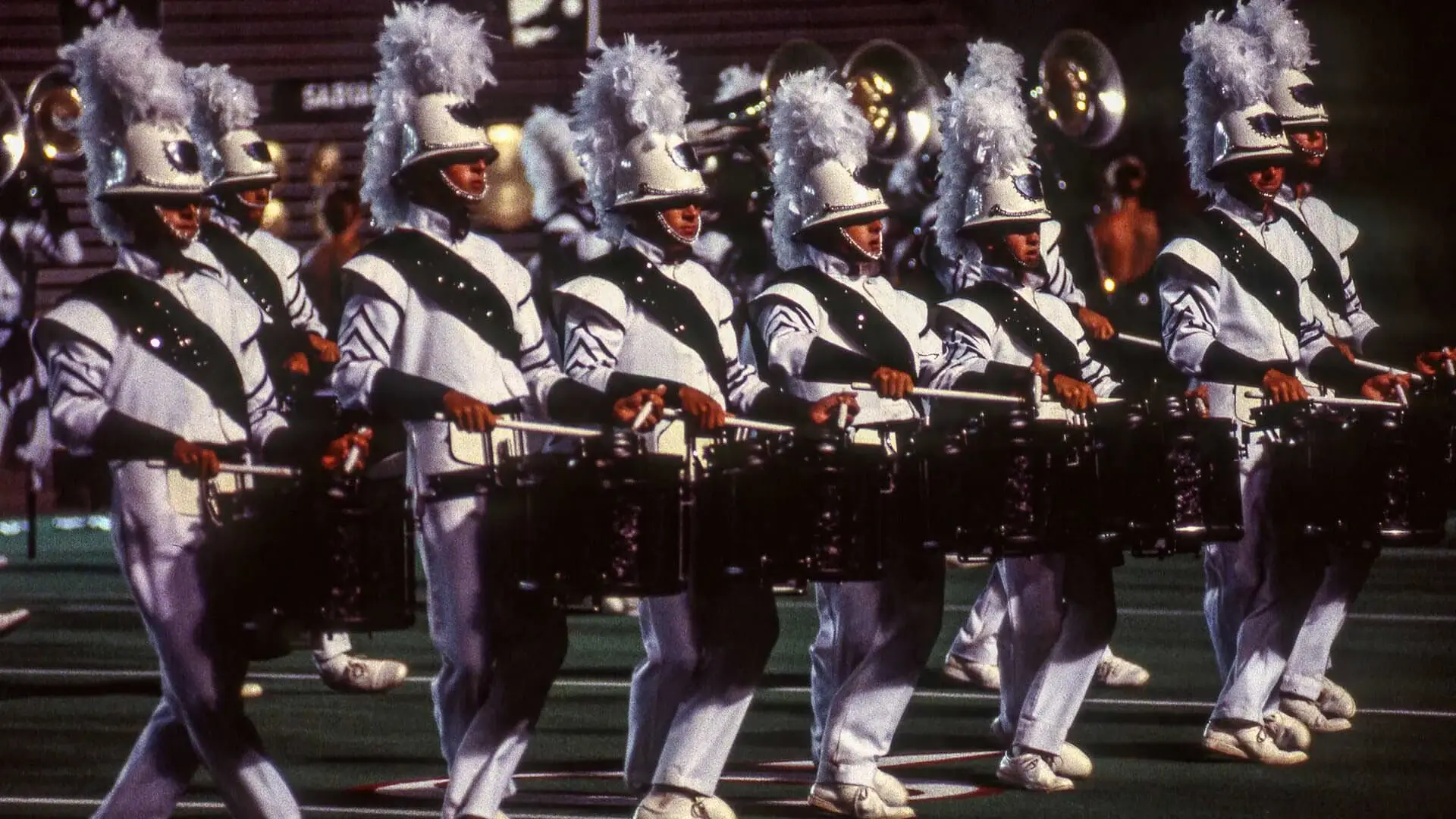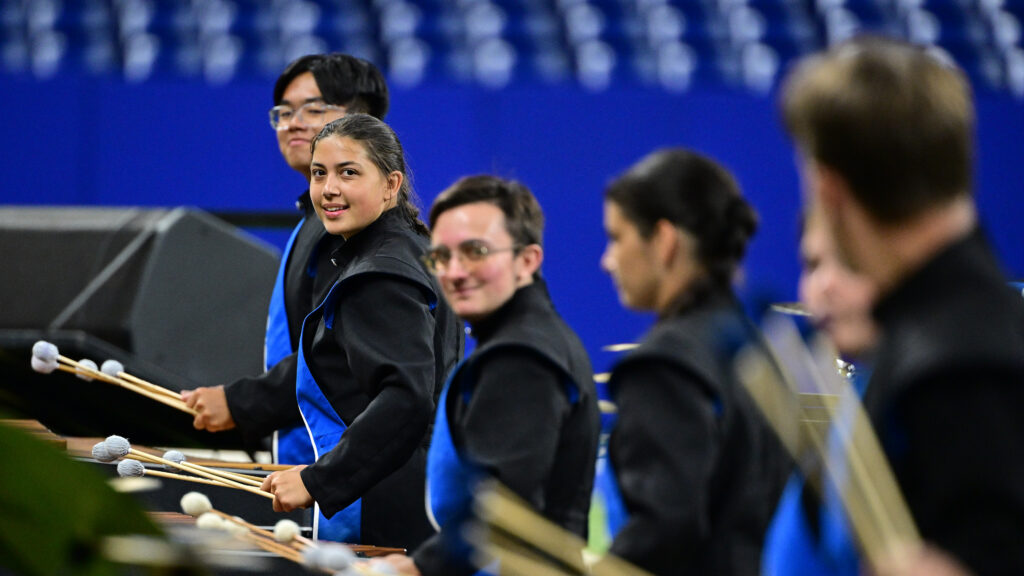The final week of the 1994 Drum Corps International Tour was held at Foxboro Stadium, located between Boston and Providence, Rhode Island. This home of the NFL’s New England Patriots would later be torn down for the larger Gillette Stadium that welcomed the DCI World Championships in 2005.
With “My Spanish Heart,” a show from the album of the same name by Chick Corea, Blue Devils became the first corps to enjoy an undefeated season since the California corps did so in 1982. The Cadets of Bergen County placed second with a 10-year anniversary salute to “West Side Story” which had helped the corps win its second World Championship title in the 1980s.
Florida’s Magic of Orlando earned a top-12 spot in the Finals for the first time, and Blue Knights and Crossmen tied for seventh place, with Crossmen’s show ending with the iconic image of corps members spelling out “Children are the Future” with their bodies.

After the fanfare, the corps utilized the most famous movement from the ballet, “Ritual Fire Dance.” The work was played at a tempo in accordance with de Falla’s original intentions, rather than the far faster “drum corps” tempo often brought to the football field in the past.
The show’s middle selection was the quietly enrapturing “Clare de Lune” from Claude Debussy’s “Suite Bergamesque,” originally a collection of works for solo piano that were written between 1980 and 1905. Originally titled, “Promenade Sentimentale,” the piece was renamed to reflect the French term for moonlight. As with the rest of the suite, this work was inspired by the late 19th Century French poetry of Paul-Marie Verlaine.
Brass players took off their helmets for this segment of the show, which were set on the ground in the shapes of three different ovals and a circle, providing another dimension to the drill formations. The music was perhaps one of the more “dangerous” works put on the field that year; not because of technical challenges, but because it allowed for four minutes of restrained beauty that let the music “breathe,” while supplying one of the season’s most extended “ahhhhhh” moments.

The color guard flags utilized wispy white and silver silks with a faint image of a circle representative of the moon (“Lune” is French for “moon”) that was easily missed. At the end, the corps members in a block wedge formation, turned to the back right corner of the field, right toward the direction of a gloriously huge full moon in the sky. It is not known if this effect was planned with the lunar calendar in mind; but if it wasn’t, it was a glorious intervention of kismet.
The corps’ closing tune of “Cinema Suite” was based on the music of Bernard Herrmann. One of the most heralded film composers of the mid-20th Century, Hermann is particularly known for his seven collaborations with filmmaker Alfred Hitchcock that included “Psycho,” “North by Northwest,” and “Vertigo.” As the brass players returned to where they had set their helmets and bent down to pick them up, there was a mass “aha!” realization from the audience that the ovals and circle represented four phases of the moon.
The section opened with Herrmann’s score to the Henry Hathaway-directed 1953 film, “White Witch Doctor,” which was set in the Belgian Congo and starred Robert Mitchum and Susan Hayward. Hermann’s score was notable for its scoring for a huge plethora of percussion instruments, particularly tribal percussion which Phantom Regiment took advantage of.
After the vigorously driving piece, the show ended with Herrmann’s “Death Hunt” from the obscure “On Dangerous Ground,” a 1951 film noir crime drama about a big city detective sent out into the countryside to find a killer. It was directed by Nicholas Ray, who four years later rose to fame directing James Dean in “Rebel Without a Cause.” The piece, taken from the film’s chase scene music, was brought back from Regiment’s 1993 production.
Technically, this may have been the most challenging musical segment of the show featuring rapid back and forth brass chords that jumped across the drill form from one section to another. The handing off of the various vertical chordal alignments of this effect was stunning.
Then after coalescing into a tight triangular horn block, the brass players rapidly crab stepped sideways 17 ½ yards toward the front center of the field blaring the production’s final chords. Finally, two stabbing notes drove a dagger through the full moon.
1994 Overview

Michael Boo was a member of the Cavaliers from 1975-1977. He wrote about the drum corps activity for more than 35 years while serving as a staff writer for various Drum Corps International projects. During his lifetime Boo wrote for numerous other publications including an honors-winning book on the history of figure skating. He also was an accomplished composer. Boo passed away in 2020 and was inducted into the DCI Hall of Fame posthumously in 2021.





